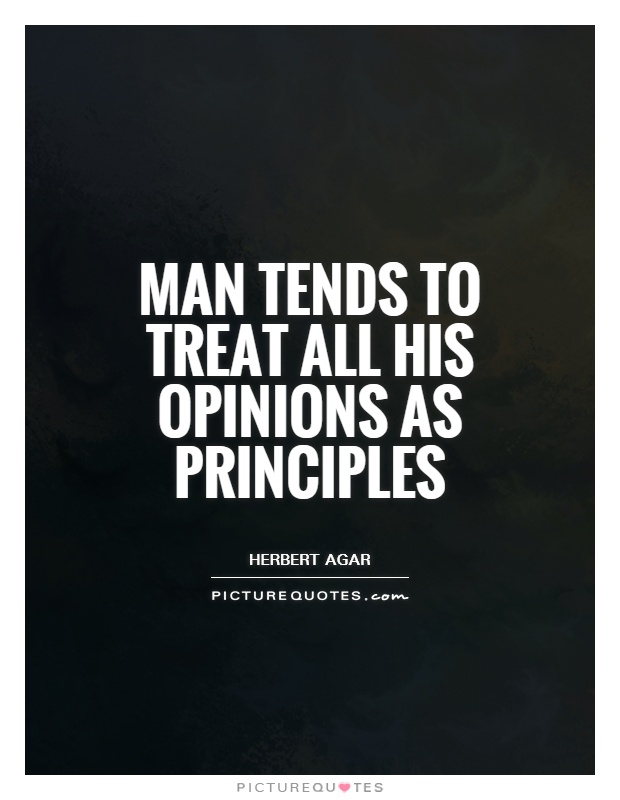Man tends to treat all his opinions as principles

Man tends to treat all his opinions as principles
Herbert Agar, an American journalist and author, once famously said, "Man tends to treat all his opinions as principles." This statement speaks to the tendency of individuals to hold their beliefs and opinions in such high regard that they become inflexible and unyielding, often blinding them to alternative perspectives and hindering their ability to engage in meaningful dialogue and critical thinking.Agar's observation is particularly relevant in today's polarized and divisive society, where people are increasingly entrenched in their own echo chambers, surrounded by like-minded individuals who reinforce their beliefs and shield them from dissenting opinions. This phenomenon, known as confirmation bias, leads individuals to seek out information that confirms their preexisting beliefs while dismissing or ignoring evidence that contradicts them.
In the context of Agar's statement, this tendency to treat opinions as principles can have far-reaching consequences. It can lead to dogmatism, intolerance, and a lack of empathy for those who hold different beliefs. It can also stifle intellectual growth and hinder the pursuit of truth, as individuals become more concerned with defending their opinions than with critically examining them.
Furthermore, when individuals treat their opinions as principles, they are less likely to engage in constructive dialogue and compromise with others. This can lead to increased polarization and conflict, as people become more entrenched in their own beliefs and less willing to consider alternative perspectives.
In order to combat this tendency, it is important for individuals to cultivate intellectual humility and open-mindedness. This involves being willing to entertain alternative viewpoints, critically examine one's own beliefs, and engage in respectful dialogue with others. By recognizing that our opinions are not infallible principles but rather fallible beliefs that are subject to revision in light of new evidence and perspectives, we can foster a more inclusive and intellectually vibrant society.












 Friendship Quotes
Friendship Quotes Love Quotes
Love Quotes Life Quotes
Life Quotes Funny Quotes
Funny Quotes Motivational Quotes
Motivational Quotes Inspirational Quotes
Inspirational Quotes